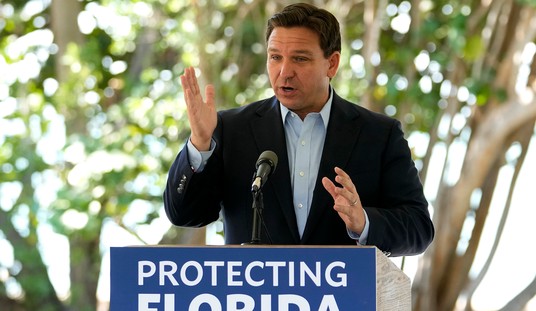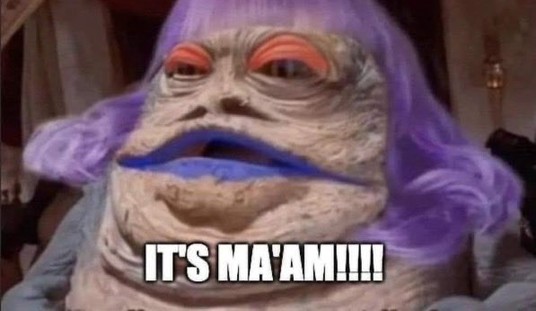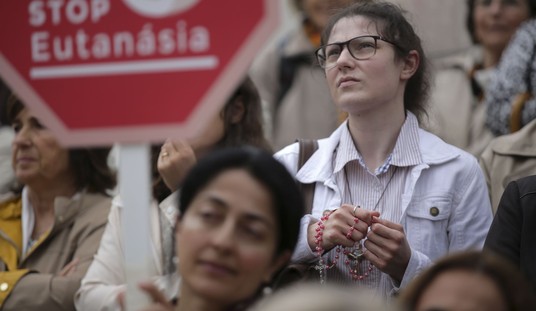Either this guy doesn’t know what he’s talking about or he’s already trying to test how much Republicans will let Trump get away with in office. A “blind trust” is a trust that government officials use to eliminate conflicts of interests between their public duties and their private assets. If you’re money’s tied up in the energy industry, for example, and you’re elected governor, the temptation to craft your energy policy in order to protect your financial interests rather than the public interest is a concern. Solution: Hand your money over to a “blind trust” with5 independent trustees, who will manage your money as they best see fit without any input from you. They might divest it from energy interests and put it into something else. The key is you won’t know — that’s what makes it “blind” — and therefore you won’t feel tempted to shape your policies to gain financially. Presidents and lesser elected officials have been doing this for years. But it only works, needless to say, if the trust is truly blind. If you’re, um, daughter is managing the money and you’re talking to her on the phone every day, that’s not a blind trust. That’s a massive-conflict-of-interest trust. You might as well still be holding the assets yourself. And Cohen knows that.
This possibility, that Trump’s sprawling intercontinental business interests would create an ethical clusterfark for him as president if he doesn’t divest, has been written about many times but it’s flown mostly under the public radar because there are always sexier Trump controversies to draw attention instead. Most federal officials are subject to criminal laws that bar conflicts of interests — but the president and vice president are exempt. The tradition of presidents using blind trusts is something they’ve done voluntarily, as a gesture towards good government. Trump might be clear of criminal liability if he insisted on keeping the trust in the family but the cloud over him would be immense. Does he care? We’ll find out. And he’s got another problem:
Trump presents an added complication. He has said for years that he believes that a large part of his fortune is tied up in the value of his brand, which he has never been shy about promoting. Recall that it was only a few months ago that Trump turned a news conference following three of his primary and caucus victories into an infomercial in which he touted the virtues of Trump Water, Trump Wine and Trump Steaks (Trump’s steak business is actually defunct and he was displaying another company’s product). So it’s worth pondering whether Trump might turn the White House into his own version of Wal-Mart.
How do you put a “brand” in a blind trust? Anything Trump does as president will affect the value of it. And since his kids are wrapped up in his businesses too, how should he go about eliminating the conflict of interest between their business holdings and his public duties? If Ivanka launches a new business next year, is there a conflict of interest for Papa Trump if he signs a bill into law that ends up benefiting that business? Does Ivanka need to put her holdings in a blind trust too?
The larger issue as this gets hashed out over the next few months is what sort of tone Trump wants to set for his presidency. It’s the same question he’s dealing with in his cabinet staffing decisions. How much will President Trump behave like candidate Trump, whom the electorate distrusted even in states that he won on Tuesday night? Putting his business interests in a real blind trust would build confidence that he wants to govern responsibly and ethically, and that he values the job over his bottom line. Playing games by letting his kids manage the money … would not. Likewise, he’s reportedly considering four different people right now for chief of staff: Reince Priebus, Steve Bannon, Corey Lewandowski, and Jared Kushner. Kushner is his son-in-law and would be seen as a nepotist pick; Bannon is the most prominent alt-right champion in the country; and Corey is Corey, the guy who was getting paid by CNN and Trump’s campaign at the same time and who was, allegedly, forced out over the summer because even the Trump kids distrusted him. Priebus would be the reassuring choice to everyone outside Trump’s own base, but then that’s the question: How much will President Trump look to appease his biggest fans in the beginning and how much will he look to reassure the majority of the the rest of the country that’s nervous about him wielding power and watching for encouraging signs?
By the way, there’s one more “good Trump or bad Trump?” test that may be on the horizon. A British paper today wonders if Trump might pardon Julian Assange for any possible hacking charges under U.S. law essentially as thanks for Wikileaks dropping endless hacked oppo on Clinton during the presidential campaign. The idea of absolving someone of criminal liability in one matter because he was personally politically useful to you in another, especially someone despised by the natsec officers whose trust Trump is trying to gain, would be a bad, bad move — and not one in keeping with a “drain the swamp” mentality. But it would probably be applauded by Trump’s base, who’ve gained strange new respect for Assange now that he’s been such a help to them. In the end, I think that’s really what Cohen is testing here. He suspects, I’d guess, that Trump will be backed up by his fans on anything he wants to do, including conflicts of interest that would have them howling if a Democratic president were guilty of them. When critics start hammering him over the blind trust, which way will they go?
Michael Cohen, EVP of the Trump organization, says if he goes to Washington, Trump's children will run the company https://t.co/YQ0HFR7NuU
— CNN Politics (@CNNPolitics) November 10, 2016








Join the conversation as a VIP Member